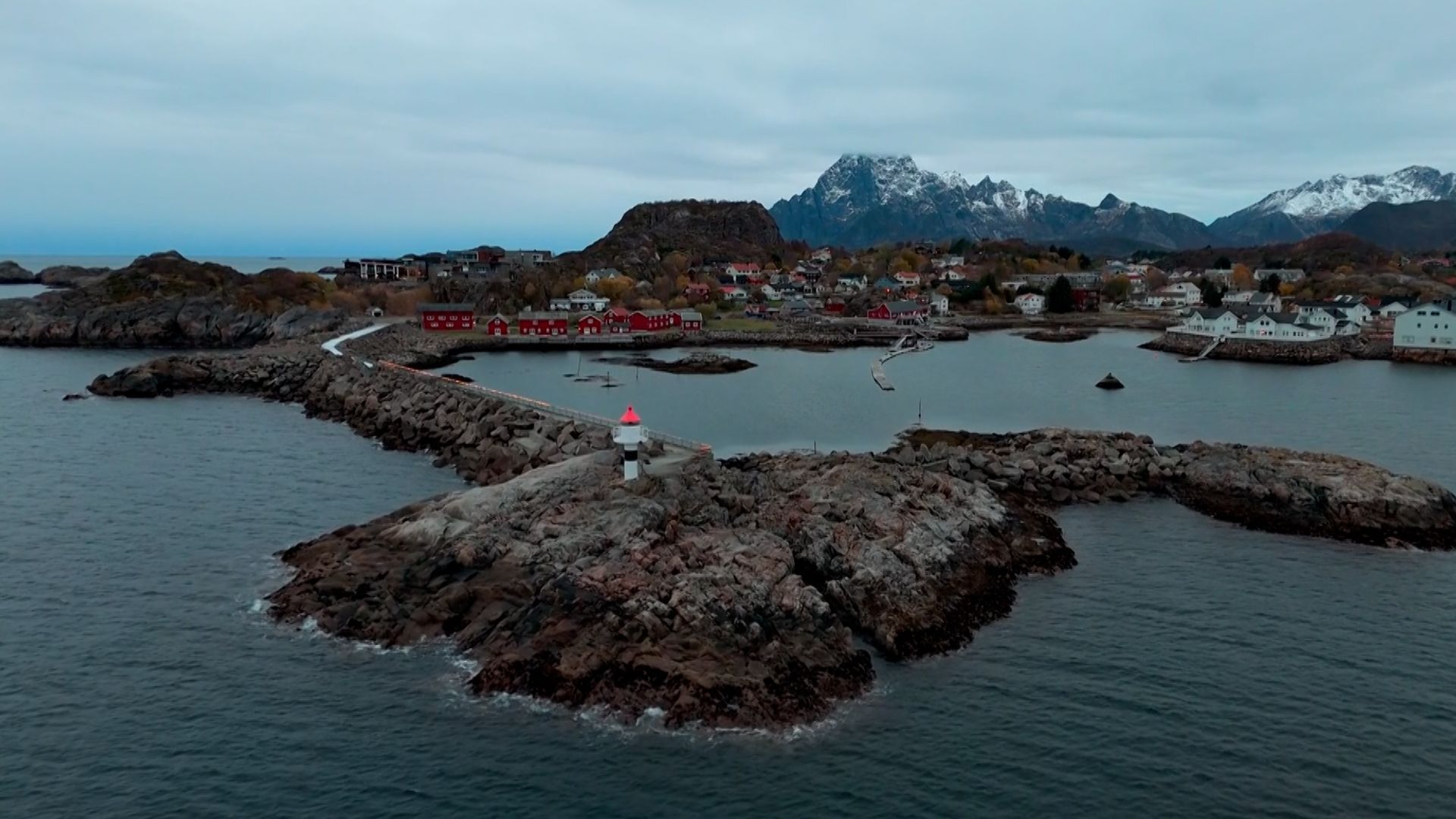
Norway approves deep sea mining despite international pushback
By Jack Aylmer (Reporter/Producer), Zachary Hill (Editor)
Media Landscape
See how news outlets across the political spectrum are covering this story. Learn moreBias Distribution
Left
Right
Untracked Bias
Deep sea mining advocates say metals found at the bottom of the ocean are key to facilitating a global transition away from fossil fuels, while scientists have warned the full effects of this practice on surrounding ecosystems have yet to be determined. Still, one nation is plunging ahead, as Norway has become one of the first countries in the world to approve deep sea mining.

Download the SAN app today to stay up-to-date with Unbiased. Straight Facts™.
Point phone camera here
“We need minerals to succeed with the green transition,” said Terje Aasland, Norway’s minister for petroleum and energy. “I strongly believe that our seabed mineral resources can be extracted sustainably and responsibly.”
The Nordic nation passed a bill this week that will open up an area of Norwegian waters larger than the size of the United Kingdom for commercial-scale operations. The bill gives companies the ability to submit proposals for deep-sea mining licenses that will be voted on through a case-by-case basis in Norway’s parliament.
Those prospective miners are after rocks on the seabed known as nodules, which contain critical minerals used to build sustainable energy sources like electric vehicle batteries, wind turbines and solar panels.
“The renewable green industries run on minerals. This is an important contribution internationally,” Norwegian MP Bård Ludvig Thorheim said.
The resources found in these waters are estimated to be worth about $100 billion and will create around 20,000 new jobs, according to an independent study by the Norwegian University of Science and Technology.
Norway’s government has said that deep-sea mining could be a good thing for all of Europe, helping reduce the continent’s reliance on China for its critical mineral supply. Europe currently imports nearly 90 percent of its rare earth metals from Beijing-controlled entities.
Many within the European Union (EU) believe any benefits will come with major risks. In November 2023, 120 EU lawmakers wrote an open letter calling on the Norwegian parliament to reject deep-sea mining because of “the risk of such activity to marine biodiversity and the acceleration of climate change.”
“In the midst of the environmental and climate crisis, the Norwegian government’s decision to start mining in the ocean’s fragile ecosystems would be reckless,” the group of EU lawmakers wrote. “As European parliamentarians we are deeply concerned by our close ally pushing forward this destructive industry, rather than joining the EU in the transition to a circular economy.”
The letter also criticized the country’s environmental impact assessment, saying it had too many “knowledge gaps.” These claims of insufficient studies on the topic were echoed by the Norway Institute of Marine Research, which estimates five to 10 years of additional analysis is still needed.
Unbiased news.
Directly to your inbox. Free!
Learn more about our emails. Unsubscribe anytime.
By entering your email, you agree to the Terms & Conditions and acknowledge the Privacy Policy.
Elsewhere, other experts in the field are pushing back, too, with more than 800 experts from 44 different countries signing a statement calling for a global pause on deep-sea mining. The Environmental Justice Foundation said the decision to allow it would serve as “an irrevocable black mark on Norway’s reputation as a responsible ocean state.”
[JACK AYLMER]
COULD DEEP SEA MINING BE THE KEY TO A GLOBAL TRANSITION AWAY FROM FOSSIL FUELS, OR WILL ITS ENVIRONMENTAL IMPACTS CREATE MORE HARM THAN GOOD?
THAT’S THE INTERNATIONAL DEBATE PLAYING OUT NOW, WITH ADVOCATES SAYING THE METALS FOUND AT THE BOTTOM OF THE OCEAN ARE CRITICAL FOR BUILDING RENEWABLE ENERGY INFRASTRUCTURE, WHILE SCIENTISTS WARN THE FULL EFFECTS OF THIS PRACTICE ON SURROUNDING ECOSYSTEMS HAS YET TO BE DETERMINED.
ONE NATION JUST MADE IT CLEAR THE ARGUMENT CAN CONTINUE WHILE IT PLUNGES AHEAD.
NORWAY HAS BECOME ONE OF THE FIRST COUNTRIES IN THE WORLD TO APPROVE DEEP-SEA MINING.
THE COUNTRY PASSED A BILL THIS WEEK THAT OPENS UP AN AREA OF NORWEGIAN WATERS LARGER THAN THE SIZE OF THE UNITED KINGDOM FOR COMMERCIAL-SCALE OPERATIONS.
THE NEW RULES GIVE COMPANIES THE ABILITY TO SUBMIT CASE-BY-CASE PROPOSALS TO NORWAY’S PARLIAMENT FOR DEEP-SEA MINING LICENSES.
THOSE PROSPECTIVE MINERS ARE AFTER ROCKS ON THE SEABED KNOWN AS NODULES, WHICH CONTAIN CRITICAL MINERALS USED TO BUILD SUSTAINABLE ENERGY SOURCES. THEIR COLLECTIVE VALUE — ABOUT $100 BILLION.
NOT TO MENTION THE POTENTIAL FOR NEW JOBS THESE RESOURCES COULD CREATE: ROUGHLY 20,000 ACCORDING TO AN INDEPENDENT STUDY
NORWAY’S GOVERNMENT SAYS DEEP MINING COULD BE GOOD FOR ALL OF EUROPE,
CITING THE CONTINENT’S OVER-RELIANCE ON CHINA FOR ITS SUPPLY OF CRITICAL MINERALS.
EUROPE CURRENTLY IMPORTS NEARLY 90% OF ITS RARE EARTH METALS FROM BEIJING-CONTROLLED ENTITIES.
HOWEVER, MANY WITHIN THE EUROPEAN UNION BELIEVE ANY BENEFITS WILL COME WITH MAJOR RISKS.
LAST FALL, 120 EU LAWMAKERS WROTE AN OPEN LETTER CALLING ON NORWAY TO REJECT DEEP-SEA MINING BECAUSE IT MAY ACCELERATE CLIMATE CHANGE AND NEGATIVELY AFFECT MARINE BIODIVERSITY.
THE LETTER ALSO CRITICIZED THE COUNTRY’S ENVIRONMENTAL IMPACT ASSESSMENT, SAYING IT HAD TOO MANY KNOWLEDGE GAPS, CLAIMS ECHOED BY THE NORWAY INSTITUTE OF MARINE RESEARCH.
OTHER EXPERTS IN THE FIELD ARE PUSHING BACK TOO, WITH MORE THAN 800 FROM 44 DIFFERENT COUNTRIES SIGNING A STATEMENT THAT CALLS FOR A GLOBAL PAUSE ON DEEP SEA MINING.
Media Landscape
See how news outlets across the political spectrum are covering this story. Learn moreBias Distribution
Left
Right
Untracked Bias
Straight to your inbox.
By entering your email, you agree to the Terms & Conditions and acknowledge the Privacy Policy.
MOST POPULAR
-
 Reuters
Reuters
New coronavirus discovered in bats similar to COVID-19
Read8 hrs ago -
 Getty Images
Getty Images
DOJ investigating UnitedHealth over Medicare Advantage billing: Report
Read11 hrs ago -
 Reuters
Reuters
Diddy’s defense attorney abruptly requests withdrawal from case
Watch 1:40Yesterday -
 Getty Images
Getty Images
Judge allows CNN lawsuit potentially worth billions to continue
ReadYesterday




